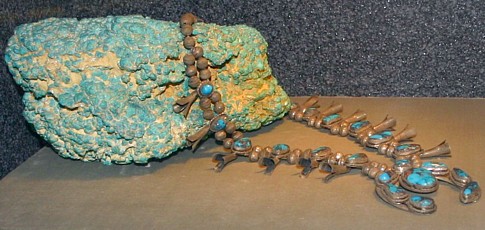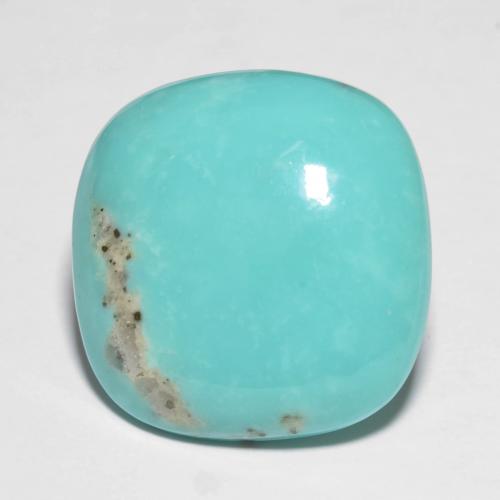

Therefore natural untreated turquoise doesn't come cheap. Having read this far you will realise that hard natural turquoise stones are no longer the norm and good quality totally natural and untreated turquoise is actually very rare and valuable. The price will be a very good indication of whether you are buying natural turquoise or not. This selection of turquoise was tested by a well-known gemstone laboratory in America and was found to be as expected: that is with no treatments at all, no stabilisation and no colour treatments.

When our supplier showed us this with his totally natural stones, whilst the stone still went black and sooty under the flame it wiped off immediately and left no damage to the stone. Whilst you probably don't want to damage your stone, a resin stabilised stone when burnt will smell similar to plastic.Natural turquoise often has small pits which can be seen, in stabilised or reconstituted turquoise you will not be able to see these as the resin will have filled the natural pits.Either ask for advice from someone with good experience with gemstones, or contact the supplier directly. Be careful of gemstones specifically advertised as totally natural - to a knowledgeable eye many of these have been clearly treated or dyed.The world standard for gem (best) quality turquoise is. However, you should be able to ask suppliers for specific details and receive a knowledgeable reply if you ask for more details. Generally accepted factors in the grading of turquoise are hardness, luster, colour, matrix, and rarity. Many suppliers do not disclose all gemstone treatments, which is not necessarily a problem as many stones have treatments and this is regarded as industry standard. If you are shopping for gems elsewhere do make sure that they are reputable and genuine specialists within the gemstone industry. At Kernowcraft Rocks & Gems we have been selling gemstones since 1967 and have built up an excellent reputation. Look for a long standing gemstone specialist supplier with a good reputation across the jewellery making industry.

Facts Mineral: Turquoise Chemistry: CuAl 6 (PO 4) 4 (OH) 8.5 H 2 O Color: Blue to green Refractive Index: 1.610 to 1.650 Birefringence: Not detectable Specific Gravity: 2.76 (+0.14, -0. The following tips are good advice to take when starting to buy gemstones and looking for a reputable supplier who you can trust. 1519 Montezuma, thinking Cortes was Quetzalcoatl, gave him the god’s favorite gem: turquoise.
GEM QUALITY TURQUOISE HOW TO
How to ensure you are buying genuine natural untreated Turquoise


 0 kommentar(er)
0 kommentar(er)
